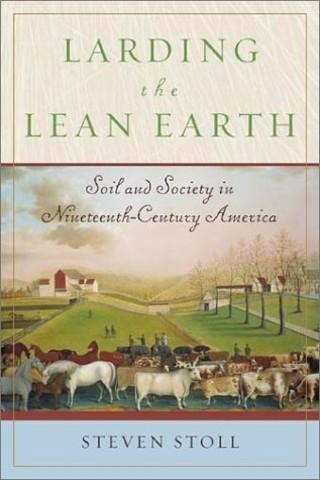Stoll, Steven. Larding the Lean Earth: Soil and Society in Nineteenth-Century America. New York: Hill and Wang, 2002. Stoll’s objective is to trace the origins of nineteenth-century conservation and, in particular, the thinking of George Perkins Marsh. The author’s discovery is that Marsh’s ideas about natural resource management grew out of a rich and heated discussion, in the late eighteenth and early nineteenth centuries, about soil fertility, plant nutrition, and livestock management. More fundamental than any other resource, soil, as Stoll correctly observes, “became the focal point for a conception of nature as strictly limited,” and it was farmers and agricultural writers who best understood soil. The problem gave rise to a major disagreement about the wisdom of territorial expansion. Restoration and improved management of eastern soils, on the one hand, and westward emigration in search of fresh soils, on the other, seemed to represent alternative paths forward for the young nation. In some ways the most suggestive part of Stoll’s argument has to do with the fate of improvement attempts—how they merged and evolved into other intellectual movements, like conservation, which then covered their tracks. As Stoll puts it, “the events of the 1840s and 1850s amounted to a distending of the original creed so far and so broad that no one remembered the farmers who first espoused it.” (Text adapted from an H-Net review by Laura Sayre.)
Larding the Lean Earth: Soil and Society in Nineteenth-Century America
Stoll, Steven | from Multimedia Library Collection:
Books & Profiles


